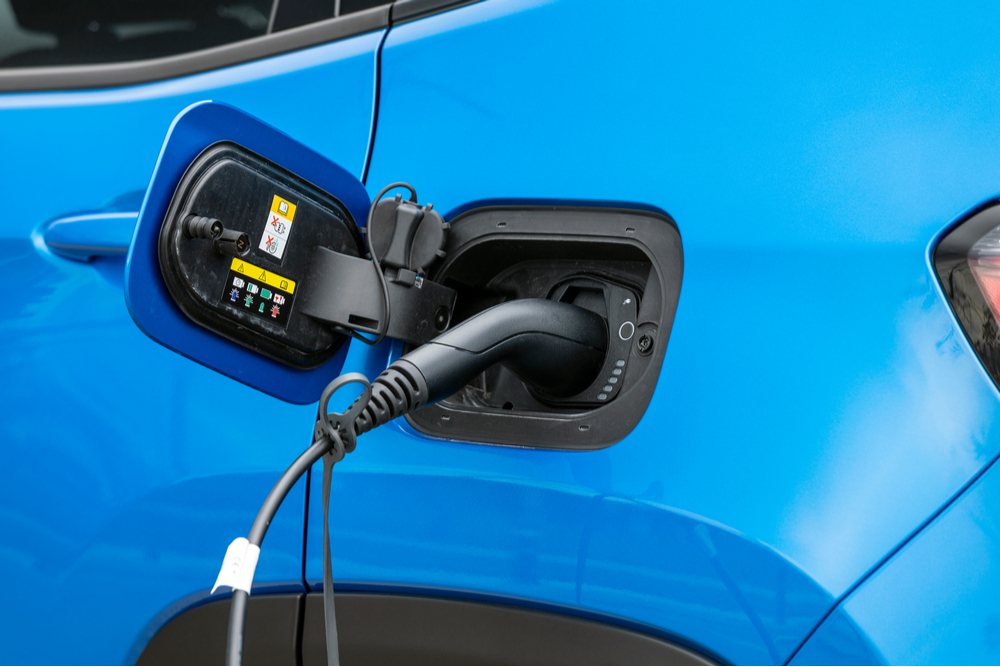Podcast Ep 71: Demand for electric and hybrid vehicles are accelerating as a busy H2 sales season comes into view, says Bank of Ireland head of Motor Sector Stephen Healy.
The Irish motor sector expects strong demand for new vehicles in July with demand expected to at around 25pc higher than the previous year.
Not only that but for the first time ever, July sales will be higher than January of the same year.
“European governments have hitched their wagons to the EV train. Government policy coupled with EU emissions directives are driving this change”
In addition, the sector in Ireland is experiencing a surge in demand for electric and hybrid vehicles with more alternative fuel cars sold in the first half of 2021 than were sold through all of 2020.
According to the latest Motor Sector Newsletter from Bank of Ireland, compared with pre-pandemic levels new car sales this year are running at around 77pc of sales in 2019. But when hire drive (HD) registrations are excluded, new car sales are running at 90pc of 2019 levels.
Hire drive sales accounted for 14pc of sales in May versus 4.4pc in the year so far and according to Healy car hire companies will continue to replace short term fleets in the second half (H2) of 2021.
Motor sectors shifts gear
“Almost 80,000 new vehicles were registered in the first five months of this year,” Healy explained, which he said is an “extraordinary achievement” by the sector when you consider sales were completely remote and virtual for the first four and half months of 2021.
New car sales are up 18pc year-on-year. “This is important when you consider that they are running at 77pc of 2019 volumes despite restrictions.”
With motor showrooms now fully reopened, Healy said that many of the efficiencies discovered during the pandemic in terms of digital engagement will coexist alongside consumers returning to showrooms to touch and test drive new vehicles.
“An overall improvement in the customer experience may be the new trend. Remote engagement may work for those who strike deals in other parts of the country. Technology solutions mean a customer could remotely sign all financial documentation before collection.”
Sparking a demand for electric cars
An interesting development is the surge in electric vehicle (EV) volumes which have already reached the numbers sold in the full year of 2020, or around 4,000 units.
Consumers, whose interest is piqued by more versions of electric and hybrid vehicles and, in particular electric vehicles with longer ranges, are voting with their wallets.
To get an overall picture, hybrid vehicles now account for 25.2pc of cars sold in Ireland in the year so far while electric vehicles are at 6.5pc. Traditional petrol vehicle sales account for 31.9pc of sales and diesel vehicles remain the most popular at 36.4pc of sales.
“Volkswagen now accounts for a third of new electric vehicles sold in the Republic of Ireland, from almost nothing last year. SUV type vehicles and electric combined will be the winners. Volkswagen put the two of those together and the ID.4 is the best-selling electric vehicle in the market this year.”
Healy acknowledged the price is still an inhibitor for EV sales but predicted that total cost of ownership of EVs will reach parity with internal combustion engine vehicles by 2025.
“For those seeking a transition, that’s where hybrid comes in,” said Healy. Examples of various hybrid types include the fully hybrid Toyota Corolla, the mild Hybrid Hyundai Tucson or the plug-in hybrid (PHEV) Kia Niro.
“PHEVs benefit from Government subsidies and account for 6.2pc of sales in the Republic of Ireland this year. Overall electrically-chargeable vehicles now account for 13pc of the Irish car market.”
“More broadly across the car industry European manufacturers are ramping up and investing heavily in Europe and Volkswagen expects to have six battery cell plants operational in Europe by 2030,” said Healy. “Another player Northvolt, which was started by former Tesla executives, aims to capture 25pc of the European electric car market by 2030.”
Other players entering the fray in Europe include British Volt, Panasonic and Tesla itself.
Healy believes Ireland could build on the momentum generated by interest in electrically-charged vehicles, especially in PHEVs.
“In terms of PHEVs, Ireland is behind the EU average at 5.7pc versus 8.1pc. The Government could do more here to incentivise adoption. It will be interesting to watch it develop. European governments have hitched their wagons to the EV train. Government policy coupled with EU emissions directives are driving this change.”
By John Kennedy (john.kennedy3@boi.com)
Published: 22 June 2021






